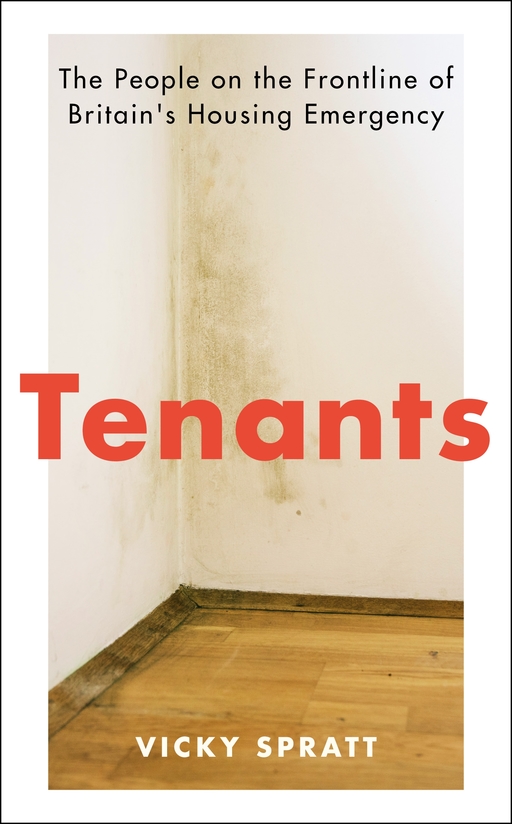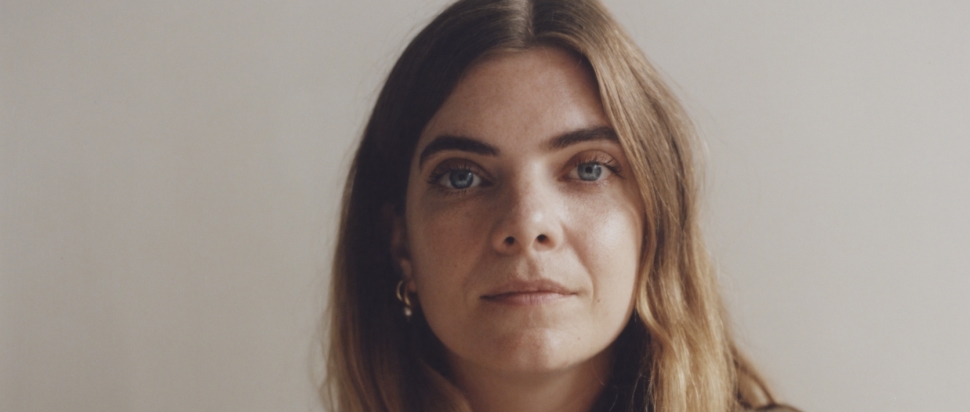Everyone In: Vicky Spratt on her new book, Tenants
We talk to Vicky Spratt about Tenants, her eye-opening new book looking at renters and their experience of Britain's housing emergency
"Nothing holds society together or tears it apart like housing," says Vicky Spratt, author of Tenants: The People on the Frontline of Britain's Housing Emergency. She has been writing about housing for a decade, and still the numbers have the power to shock her. Across the UK there are 22 million adults and children without a safe or secure home. In the first few months of 2021, an average of 400 households were evicted every day in England. "I fear we become desensitised to the numbers."
What she really wanted to do with Tenants is to "humanise the statistics. To show the reader behind the numbers." It examines the story of renting, from when Britain built the first council houses to when Thatcher’s government sold off millions of them. It examines the numerous politicians and their policies that have gradually destroyed the chance for people to live in a safe home. And importantly, it examines the psychological effect that renting, being evicted, and living in unsuitable or temporary accommodation can have on people.
"Homelessness, eviction, the financial stress of not being able to pay your rent – it’s really important to give it a language which is not just, ‘this is bad for people’s mental health’," continues Spratt, noting she wanted to "help people understand what is too often dismissed as a lesser symptom of housing. Losing your home is a traumatic experience and it can send you into a spiral and its effects can last for years."
Spratt delves into the complete experience of renting by interviewing several people in a range of situations. A single man over 60 who is being evicted, a family with young children who simply can’t afford the rising rent, a single mother who is forced into temporary accommodation, a woman in the shockingly insecure accommodation called guardianships (whose contracts are so disturbing they are told not to talk to the press). Each story represents thousands, often millions, of people like them.
Spratt was keen to "let the stories breathe a bit more and give the people I meet day in and day out the space they deserve. You are actually able to see the bigger picture and that was really important to me."
That picture is not good. It is estimated that poor housing could be costing the NHS £1.4 billion a year. The charity Shelter estimates that the UK needs 3.1 million new social and affordable homes to help those trapped by the high cost of rent.
"The government [in Scotland] recognises that housing and a home is an important piece of people’s lives." Yes, she says, "there is still homelessness, rents are still going up, houses can be unaffordable, but you have rent pressure zones, longer tenancies. None of that has insulated the Scottish people from the effects of Britain’s overheated housing market. But at least there are some measures in place. And the will to keep looking at it."
Scotland is also leading the way with a scheme called ‘Housing First’, which was conceived as a solution to homelessness. It’s a simple idea: instead of telling someone who is rough sleeping to, for example, get a job to access support, they are given a house first. In the first two years of the project, 82% of people stayed in the homes they were given. Spratt notes that, "nobody can live a stable and fulfilling life without housing security."
So, is there hope? When the pandemic started, things changed very quickly. Homeless people were given accommodation in a scheme called ‘Everyone In’ where they could self-isolate, there were mortgage holidays for homeowners and all evictions were halted. But mostly, private renters were overlooked.
"That safety net that had been so carefully constructed in the 20th century to protect people, and social housing was a huge part of that, had been so badly undone that we weren’t prepared when something huge happened. And we’re still not properly protecting people now." During COVID, Spratt talks about how our homes were initially our best form of defence. But things did happen and they happened quickly. "For the first time since the Second World War, what the government did directly impacted the lives of everybody – not just select groups."
Tenants are faced with rising rents, housing which damages their health, and the constant threat of evictions. Spratt states: "Everyone needs to understand the structure of entrenched unfairness within which people [who are renting] are struggling.
"Housing impacts everyone and everything, regardless of where you are in the ladder or the market, although I don’t like those metaphors as they obscure what we are really talking about – we’re talking about homes, not ladders and markets." Tenants themselves can read this as "there are people in the private rental sector who don’t know what rights they have." A copy should be handed to the "people who make decisions about policy" and to anyone who thinks that young people can’t buy homes as they "don’t work hard enough" – just read this.

Tenants: The People On The Frontline of Britain's Housing Emergency is published by Profile Books, out now, £20
